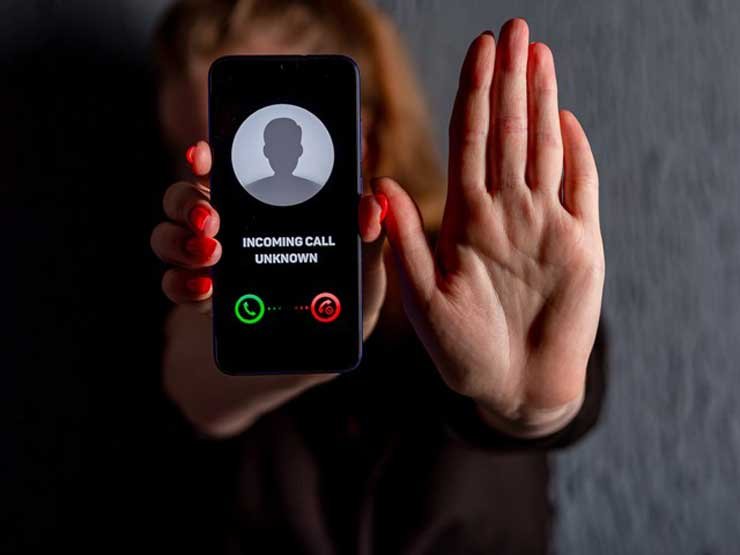Warning: 3456849135, +393511958453, 3409709183, 0289952272, +393511126529, 3469800477, +393319997840, +393773021998, +390669328449, +393473464731, 0697858700, +393512079596,
Spam calls originating from Italian numbers. Learn how to identify and handle these calls effectively to safeguard your privacy and peace of mind. Stay informed with expert advice and FAQs.
Introduction:
In this digital age, communication has become seamless, connecting people from all corners of the globe. However, it has also opened doors for unscrupulous individuals seeking to exploit this convenience. One concerning issue that has emerged is spam calls, and recently, a new trend has been identified—spam calls originating from Italian numbers. In this comprehensive guide, we will delve into the details of this alarming phenomenon, providing insights, solutions, and tips to protect yourself from potential spam calls. If you’ve ever received calls from numbers like 3456849135, 393511958453, 0289952272, or 393511126529, this article is a must-read to safeguard your personal information.
Warning: Italian Numbers Identified as Potential Sources of Spam Calls
Spam calls have become a pervasive annoyance, and identifying their origin is essential to thwart potential scams. Recently, there has been a significant rise in spam calls originating from Italian numbers. These calls often lure unsuspecting individuals into fraudulent schemes, posing a serious threat to privacy and financial security. To counter this menace effectively, let’s explore various aspects related to these suspicious calls.
Understanding the Rise of Spam Calls from Italian Numbers
- The Prevalence of Spam Calls: Unwanted calls are a global issue, affecting millions of people daily. With the rise of Voice over Internet Protocol (VoIP) technology, scammers can easily disguise their identities using Italian phone numbers, making it challenging to identify the source.
- Caller ID Spoofing: The practice of caller ID spoofing allows scammers to manipulate the displayed number on your caller ID to resemble an Italian number, even though the call might originate from a different location.
- Targeting Language Preferences: Scammers might exploit language preferences, targeting individuals who speak Italian or have connections to Italy, as this approach can increase the likelihood of someone falling for the ruse.
- Evasion of Local Authorities: Operating from foreign jurisdictions, scammers often elude local law enforcement, making it difficult to apprehend them. This makes prevention and awareness critical in mitigating the impact of spam calls.
Identifying Spam Calls from Italian Numbers
- Unsolicited Offers and Promotions: Most spam calls come with unsolicited offers, such as lottery winnings, discounted products, or vacations, where the recipient has not actively sought such information.
- Robocalls and Automated Messages: Automated messages with recorded voices are telltale signs of spam calls. These messages often urge immediate action or claim impending legal consequences.
- High-Pressure Tactics: Scammers use high-pressure tactics to create a sense of urgency, coercing individuals to divulge personal information or financial details.
- Too Good to Be True: Offers that sound too good to be true, promising extravagant rewards for minimal effort, are often a red flag.
- Caller Disguise: Scammers may pose as legitimate institutions, such as banks or government agencies, to deceive their victims.
Protecting Yourself from Spam Calls
- Avoid Answering Unknown Numbers: If you receive a call from an unknown number, let it go to voicemail. Legitimate callers will usually leave a message.
- Register on Do-Not-Call Lists: Add your number to official do-not-call lists to reduce the number of spam calls you receive.
- Use Call Blocking Apps: Consider using call-blocking apps that can automatically filter out spam calls.
- Stay Informed: Keep yourself updated on the latest scams and tactics employed by spammers.
- Never Share Sensitive Information: Be cautious about sharing personal information or financial details over the phone, especially if the caller seems suspicious.
FAQs about Italian Numbers and Spam Calls
-
FAQ 1: Are all calls from Italian numbers spam calls?
Answer: Not all calls from Italian numbers are spam calls. However, the prevalence of spam calls using Italian numbers has increased significantly.
-
FAQ 2: Can scammers steal my personal information through spam calls?
Answer: Yes, scammers can use spam calls to extract sensitive information, leading to identity theft and financial fraud.
-
FAQ 3: What should I do if I receive a spam call from an Italian number?
Answer: If you suspect a call to be spam, do not engage with the caller, and refrain from sharing any personal information.
-
FAQ 4: How can I report spam calls?
Answer: You can report spam calls to your local telecommunications authority or use dedicated apps to report and block such numbers.
-
FAQ 5: Is it possible to trace the origin of spam calls?
Answer: Tracing the exact origin of spam calls can be challenging due to caller ID spoofing and scammers operating from foreign jurisdictions.
-
FAQ 6: How can I protect my vulnerable family members from falling victim to spam calls?
Answer: Educate your family members about the risks of spam calls, and advise them not to share personal information with unknown callers.
Conclusion:
Being cautious about calls from Italian numbers is crucial in safeguarding your privacy and financial well-being. The rise in spam calls necessitates proactive measures to protect ourselves and our loved ones. By identifying the warning signs and implementing preventive steps, we can collectively contribute to curbing this growing threat. Stay informed, stay vigilant, and remember that knowledge is the key to keeping spam calls at bay.


















